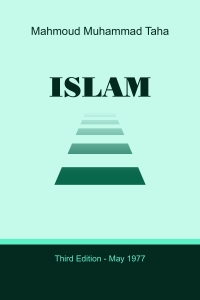The Nation of the First Message is that of the Believers
When the Qur’an refers to Muslims in the Mosaic stage as "Jews" and Muslims in the Christian stage as "Christians," it also refers to “Muslims” in the stage of Muhammad’s first message as "Believers" or "Those who have believed."
Listen to His words: “Say, O People of the Scripture, you are [standing] on nothing until you uphold the Torah, the Gospel, and what has been revealed to you from your Lord. And that which has been revealed to you from your Lord will surely increase many of them in transgression and disbelief. So do not grieve over the disbelieving people. Indeed, those who have believed [in Muhammad], those who were Jews, the Sabians, and the Christians - those [among them] who believed in Allah and the Last Day and did righteousness - no fear will there be concerning them, nor will they grieve.” (5: 68-69)
And again: “Indeed, those who have believed [in Muhammad], those who were Jews, the Christians, and the Sabians - those [among them] who believed in Allah and the Last Day and did righteousness - will have their reward with their Lord, and no fear will there be concerning them, nor will they grieve.” (2: 62)
The difference between the stages of Islam - Judaism, Christianity, and Muhammad’s two messages - is a matter of degree, reflecting progression from a harsh, crude, and rigid beginning to a refined, intelligent, and gentle end.
This progression is mirrored in the laws revealed between the beginning and the end. It is beyond doubt that legislation - whether related to customs or acts of worship - is an educational methodology that elevates societies and individuals from coarseness and rigidity to gentleness and humanity.
And the more people were hard-hearted and dull in perception, the more they were subjected to strict legislation and burdened with restraints and obligations. Had they fully observed what was required of them, they would not have been burdened in their affairs as Allah Almighty says: “What would Allah do with your punishment if you are grateful and believe? And ever is Allah Appreciative and Knowing.” (4: 147)
However, the need for discipline is what necessitated prohibitions and stringent commands, which were tailored to the needs of the people.
When Islam was in its Judaic stage, and when people were harsh and coarse, Allah said of them: “So for wrongdoing on the part of the Jews, We made unlawful for them [certain] good foods which had been lawful to them, also for their averting from the way of Allah many [people], and for their taking of usury while they had been forbidden from it, and their consuming of the people’s wealth unjustly. And We have prepared for the disbelievers among them a painful punishment.” (4: 160-161)
And He said of them: “And when Moses said unto his people: ‘O my people! You have indeed wronged yourselves by taking the calf [for worship]. So turn in penitence to your Creator, and kill yourselves. That is best for you with your Creator.’ Then He accepted your repentance. Indeed, He is the Accepting of Repentance, the Merciful.” (2: 54)

